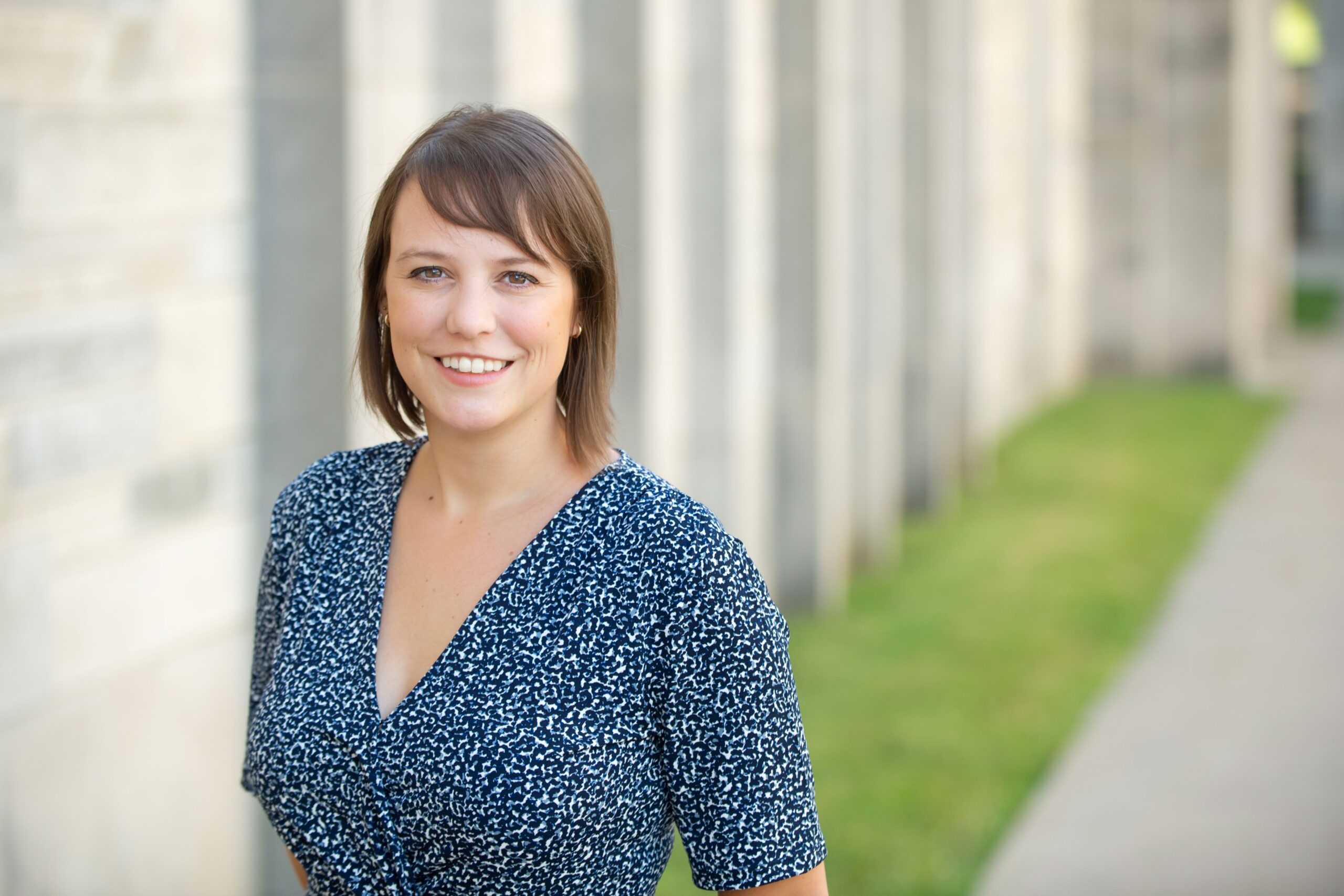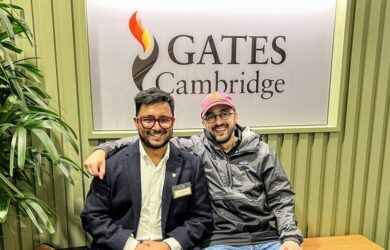
Brielle Stark talks about her new research project which is using VR to tackle the language problems faced by stroke patients
A big problem in the field of speech therapy and language science is that stroke patients can improve on language tasks during therapy, but that often doesn’t help them in the real world. Virtual reality could be the middle ground.
Brielle Stark
Brielle Stark [2012] is pioneering new ways of approaching the language problems faced by stroke patients.
She was recently awarded a Fulbright Scholar Award to conduct research in Australia, starting in Spring 2025. She will be moving to Australia to work with her long-time colleague Dr Lucy Bryant at the University of Technology Sydney on a study using virtual reality to address post-stroke language problems occurring in chronic aphasia.
The two researchers have known each other for five years after meeting at an international conference in 2019 and having read each other’s papers for some time. They have formed a solid partnership despite only meeting once in person and co-founded an international working group on aphasia – FOQUSAphasia – which is working with researchers and speech therapists to improve the study of natural language in persons with aphasia. Brielle will be a visiting professor at the University of Technology Sydney for four months.
She says: “A big problem in the field of speech therapy and language science is that stroke patients can improve on language tasks during therapy, but that often doesn’t help them in the real world. Virtual reality could be the middle ground. One reason we think the patients don’t improve in the real world is a lack of confidence in real life settings.”
She adds that the research she and Dr Bryant will conduct is brand new and it is yet to be seen whether stroke patients will feel comfortable being immersed in virtual reality. They are creating different settings such as a coffee shop to try to develop their confidence.
Cambridge and beyond
Brielle left Cambridge in 2016 after completing her PhD under the supervision of Dr Elizabeth Warburton. Her research focused on language rehabilitation in persons with post-stroke, chronic aphasia through the evaluation of an iPad-based language therapy app, as well as investigating the presence of inner speech in this population. It was driven by her own personal experience of the impact of strokes after her uncle suffered a bad stroke in her first year of university.
Following her PhD, Brielle did two years as a postdoctoral fellow at the University of South Carolina, which has a large National Institutes of Health-funded aphasia research centre and where she honed her skills in neuro-imaging.
By 2018 she had moved to Indiana University as an Assistant and, as of June 2024, an Associate Professor. There she was able to put together the knowledge gained doing her PhD and the imaging skills she had developed during her postdoctoral work despite the impact of Covid on her research. The pandemic put a stop to work on MRIs and changed her focus to analysing language and behaviour, often collected using virtual and remote technology.
Last year she was awarded the Indiana University’s most prestigious and hugely competitive pre-tenure award, the Outstanding Junior Faculty Award, in recognition of her teaching, research and mentoring work. She has not only won numerous mentoring awards, but has published many papers and won the Tavistock Trust for USA Aphasia Distinguished Scholar Award in 2021.
Gates Cambridge
She says she really values her Gates Cambridge Scholarship experience for helping her to create a cohesive narrative about why her research matters which she says very much helps with grant writing. In Cambridge she also supervised students and this allowed her to build her teaching skills, which she also added to as a postdoctoral fellow, teaching at a community college.
Brielle has also grown her leadership skills in a range of different areas, outside of pure research, in keeping with Gates Cambridge’s emphasis on different forms of leadership. She is currently on maternity leave with her second child – she has a daughter aged two and a son who is just a few months old. She thinks it is important to be open about being a mother in the academic world and to be a positive role model for other working parents, including some of her PhD students. She makes a point about not working ‘crazy’ hours and having weekends. “There is a common misconception that to be successful as an academic you have to burn out. I have a great team to help me be more efficient,” she says. That has freed her up to focus on developing her leadership skills. For instance, last year she was director of the PhD programme in her department.
Brielle also shows her leadership skills in her extracurricular activities. At Cambridge she coxed for the lightweight women’s team, having started rowing in 2008. Now she is a US Rowing Assistant Referee and travels around the country umpiring races. She is also a certified rowing coach and coaches a local team. She is living proof that leadership and impact come in many forms.












